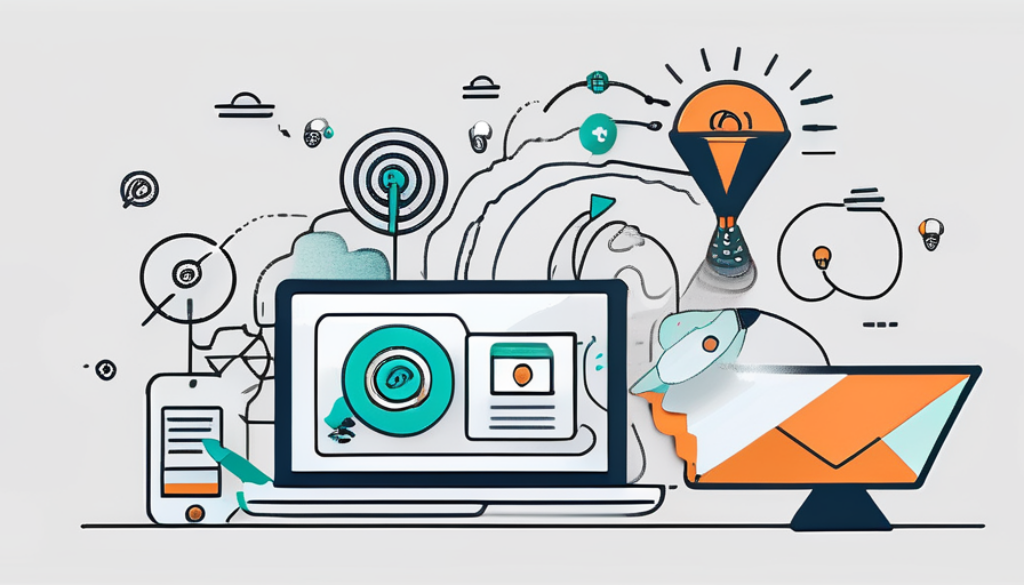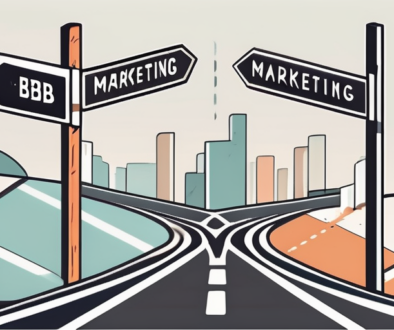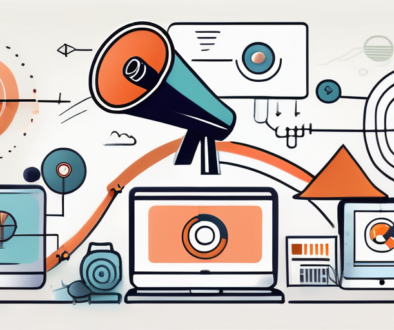Want More B2B Leads? Use These Strategies
In the world of business-to-business (B2B) marketing, lead generation is the lifeblood of success. Without a consistent stream of leads, businesses struggle to grow and thrive. In this ultimate guide, we will explore everything you need to know about B2B lead generation, from understanding its importance to implementing effective strategies and utilizing the right tools for success.
Understanding B2B Lead Generation
Before we dive into the strategies and tools, let’s first define what B2B lead generation actually is.
B2B lead generation is a multifaceted process that involves various strategies and techniques to attract and engage potential clients within the business-to-business space. It goes beyond simply acquiring contact information; it is about creating meaningful connections and nurturing relationships with prospects to ultimately drive conversions and boost revenue.
Defining B2B Lead Generation
B2B lead generation refers to the process of identifying and attracting potential customers or clients who have shown interest in a product or service offered by a business. This process aims to convert these prospects into qualified leads, nurturing them through the sales funnel until they are ready to make a purchase.
Effective B2B lead generation involves understanding the target market, crafting compelling messaging, utilizing various marketing channels, and implementing lead scoring and nurturing strategies. It is a dynamic and ongoing effort that requires constant optimization and adaptation to changing market trends and consumer behaviors.
Importance of B2B Lead Generation
Lead generation is crucial for B2B businesses because it allows them to target the right audience, build brand awareness, and ultimately drive sales. Without a consistent flow of leads, businesses face the risk of stagnation or even failure.
Furthermore, B2B lead generation plays a vital role in establishing credibility and trust with potential clients. By providing valuable content, personalized experiences, and timely follow-ups, businesses can position themselves as industry experts and reliable partners in the eyes of their target audience.
Strategies for Effective B2B Lead Generation
Now that we have established the importance of B2B lead generation, let’s explore some proven strategies that can help businesses generate high-quality leads.
But before we dive into the strategies, let’s take a moment to understand the concept of lead generation in more detail. Lead generation is the process of attracting and converting potential customers into leads, who have shown interest in your product or service. These leads are then nurtured and guided through the sales funnel, with the ultimate goal of converting them into paying customers.
Content Marketing for Lead Gen
One of the most effective strategies for B2B lead generation is content marketing. By creating valuable and relevant content, businesses can attract their target audience and capture their contact information through forms or subscriptions. This could include blog posts, whitepapers, ebooks, and more.
But it’s not just about creating content for the sake of it. To truly succeed in content marketing for lead generation, businesses need to understand their audience’s pain points and provide solutions through their content. By addressing these pain points and offering valuable insights, businesses can position themselves as industry leaders and build trust with their audience, making it more likely for prospects to convert into leads.
Social Media and Lead Generation
Social media platforms offer immense opportunities for B2B lead generation. By utilizing targeted advertising, businesses can reach their desired audience and entice them to engage with their content or offers. This engagement can help capture leads and nurture them through social media channels.
But it’s not just about posting content and hoping for the best. Businesses need to have a well-thought-out social media strategy that includes creating engaging and shareable content, interacting with their audience, and leveraging social media analytics to optimize their lead generation efforts. Furthermore, social media platforms provide valuable data and insights, allowing businesses to tailor their lead generation efforts based on audience behavior and preferences.
Email Marketing for B2B Leads
Email marketing continues to be a powerful tool for B2B lead generation. By building an email list and crafting personalized and engaging email campaigns, businesses can nurture leads and guide them through the sales funnel.
But it’s not just about sending generic emails to your entire list. Personalization is key. Businesses need to segment their email list based on various criteria such as industry, job title, or previous interactions, and send targeted emails that address the specific needs and pain points of each segment. Automation tools can also be leveraged to send targeted emails based on the prospect’s behavior, ensuring that each lead receives the most relevant content to drive conversions.
By implementing these strategies and continually optimizing them based on data and insights, businesses can effectively generate high-quality B2B leads and increase their chances of converting them into loyal customers.
Tools for B2B Lead Generation
Implementing the right tools can significantly enhance your B2B lead generation efforts. Let’s explore some essential tools every business should consider:
CRM Systems for Lead Management
Customer Relationship Management (CRM) systems, such as Salesforce or HubSpot, are indispensable for effectively managing leads. These systems allow businesses to track and organize lead data, track interactions, and nurture leads throughout the sales process.
CRM systems not only help in managing leads but also enable businesses to create personalized experiences for their prospects. By analyzing customer data and interactions, businesses can tailor their marketing and sales strategies to meet the specific needs of each lead, increasing the chances of conversion.
Marketing Automation Tools
Marketing automation tools, such as Marketo or Pardot, can streamline your lead generation efforts. These tools automate repetitive tasks, such as email follow-ups and lead scoring, allowing businesses to focus on high-value activities.
Moreover, marketing automation tools enable businesses to create targeted and personalized campaigns at scale. By segmenting leads based on their behavior and demographics, businesses can deliver relevant content and offers, increasing engagement and driving conversions.
Analytics and Reporting Tools
Measuring the success of your B2B lead generation efforts is crucial for optimizing your strategies. Analytics and reporting tools, like Google Analytics or Adobe Analytics, provide valuable insights into your website traffic, conversions, and other key metrics.
These tools not only help businesses track the performance of their lead generation campaigns but also provide data-driven insights for future decision-making. By analyzing the data collected from various marketing channels, businesses can identify trends, optimize their campaigns, and allocate resources effectively to maximize ROI.
Measuring Success in B2B Lead Generation
Tracking the performance of your B2B lead generation campaigns is essential to ensure ongoing success. Let’s explore some key metrics and concepts:
Key Performance Indicators (KPIs)
KPIs are specific, measurable goals that indicate the success of your lead generation efforts. Common KPIs include lead conversion rate, cost per lead, and revenue generated from leads.
Understanding Conversion Rates
Conversion rates measure the percentage of leads that take a desired action, such as making a purchase or filling out a form. Analyzing and optimizing conversion rates can help businesses identify areas for improvement and increase overall lead quality.
ROI of B2B Lead Generation
Return on Investment (ROI) quantifies the profitability of your lead generation efforts. By comparing the cost of generating leads with the revenue generated, businesses can determine the effectiveness and value of their lead generation strategies.
However, measuring success in B2B lead generation goes beyond just these metrics. It also involves understanding the customer journey and the various touchpoints that lead to conversion. By mapping out the customer journey, businesses can identify potential areas of improvement and optimize their lead generation strategies accordingly.
Furthermore, it’s important to consider the quality of leads generated. While conversion rates provide insights into the percentage of leads that take a desired action, it’s equally important to assess the overall quality of those leads. This can be done by analyzing factors such as lead source, lead qualification criteria, and lead engagement levels.
Additionally, businesses should not overlook the importance of lead nurturing in the B2B lead generation process. Lead nurturing involves building relationships with leads over time, providing them with relevant and valuable content, and guiding them through the sales funnel. By implementing effective lead nurturing strategies, businesses can increase the likelihood of converting leads into customers.
As a B2B marketer or business owner, understanding and mastering these metrics, customer journey mapping, lead quality assessment, and lead nurturing techniques is vital for continuously improving your lead generation efforts and maximizing your return on investment.
In conclusion, B2B lead generation is a critical component of any successful marketing strategy. By understanding the importance of lead generation, implementing effective strategies, leveraging the right tools, and measuring success through key metrics, businesses can generate high-quality leads and drive sustainable growth.



